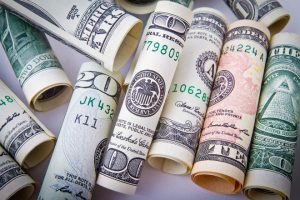 A new study released by the left-leaning Institute for Policy Studies in Washington, D.C., headlines what they see as shocking news that in America some people are much wealthier than others.
A new study released by the left-leaning Institute for Policy Studies in Washington, D.C., headlines what they see as shocking news that in America some people are much wealthier than others.
Some findings of the study, entitled “Billionaire Bonanza: The Forbes 400 and the Rest of Us,” are:
— “The three wealthiest people in the United States — Bill Gates, Jeff Bezos, and Warren Buffett — now own more wealth than the entire bottom half of the American population.”
— The 400 billionaires on the Forbes 400 list “now own more wealth than the bottom 64 percent of the American population.”
— “One in five US households …have zero or negative net worth. Over 30 percent of black households and 27 percent of Latino households have zero or negative net worth.”
The message that IPS wishes to convey here is that there’s a connection between wealth at the top and dismal economic circumstances at the bottom. That is, the poor are poor because the rich are rich.
Their proposed solution for narrowing the gap between rich and poor follows this premise. The way to make the poor less poor, in their view, is to make the rich less rich. And, of course, they propose to do this with government power. “By taxing our wealthiest, we could raise significant revenues and then invest these funds to expand wealth-building opportunities across the economy.”
If we accept the questionable assumption that higher taxes on the wealthy would raise “significant revenues,” who exactly, according to their plan, would invest these funds to produce all these new opportunities?
Those with the greatest investment skills are those on the Forbes 400 list, who the IPS sees as the problem and who they want to punish for being successful.
So in all likelihood it’s a government bureaucrat that they want to put in charge of making these brilliant “wealth-building” investments.
But bureaucrats would not be bureaucrats if they knew how to invest and create wealth. We’ve been through this before — the list of failed government projects is long. Recall most recently the Solyndra scandal — the failed solar panel firm backed by the Obama administration — leaving taxpayers on the hook for $535 million in federal guarantees.
Who are these billionaires on the Forbes 400 list? Joshua Rauh of the Stanford University School of Business and Steven Kaplan of the University of Chicago Booth School of Business studied the list.
In 2011, 32 percent came from wealthy families, compared to 60 percent in 1982. And in 2011, 69 percent started their own businesses compared to 40 percent in 1982. So these are increasingly individuals who created their own wealth.
And the fact is, the wealthy already pay the lion’s share of the nation’s taxes, and this has increased over time.
According to the Tax Foundation, in 2014, those whose incomes were in the top 1 percent paid 39.5 percent of all taxes. In 1982, the top 1 percent paid 19 percent of all taxes. Raising taxes more on the highest income earners will benefit tax lawyers and lobbyists and do little for the rest of us.
Envy doesn’t create wealth. Freedom and character does. How about we focus less on punishing those who succeed and more on helping those who are not realizing their potential?
Harvard economist Martin Feldstein estimates that cutting corporates taxes would raise national income by $500 billion — $3,500 per household. I say we cut them even more for businesses opening in distressed communities.
Let’s admit that our massive welfare state has been a disaster. I have long been for allowing low-income Americans to stop paying the payroll tax and instead use these funds to invest in a personal retirement account to build personal wealth.
These are just starters. We should be looking for ideas to bring up the bottom. Not dragging down the top.
COPYRIGHT 2017 STAR PARKER
DISTRIBUTED BY CREATORS.COM
 Star Parker is the founder and president of the Center for Urban Renewal and Education. Contact her at www.urbancure.org.
Star Parker is the founder and president of the Center for Urban Renewal and Education. Contact her at www.urbancure.org.
 Black Community News News and Commentary for Christians
Black Community News News and Commentary for Christians



